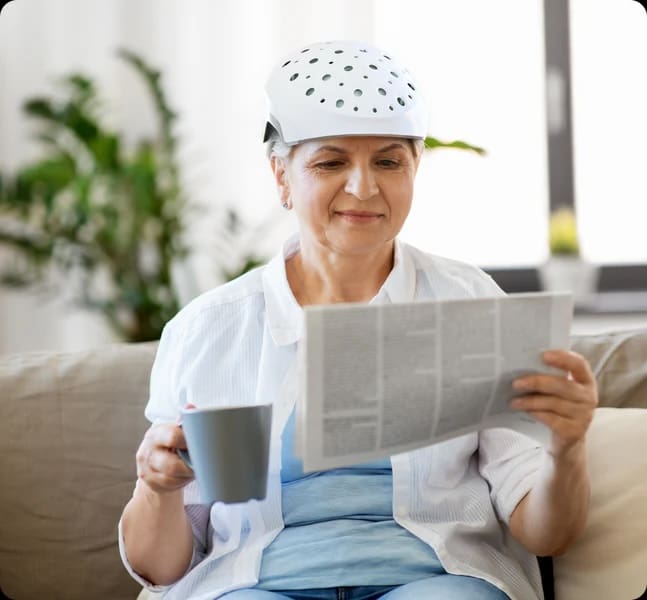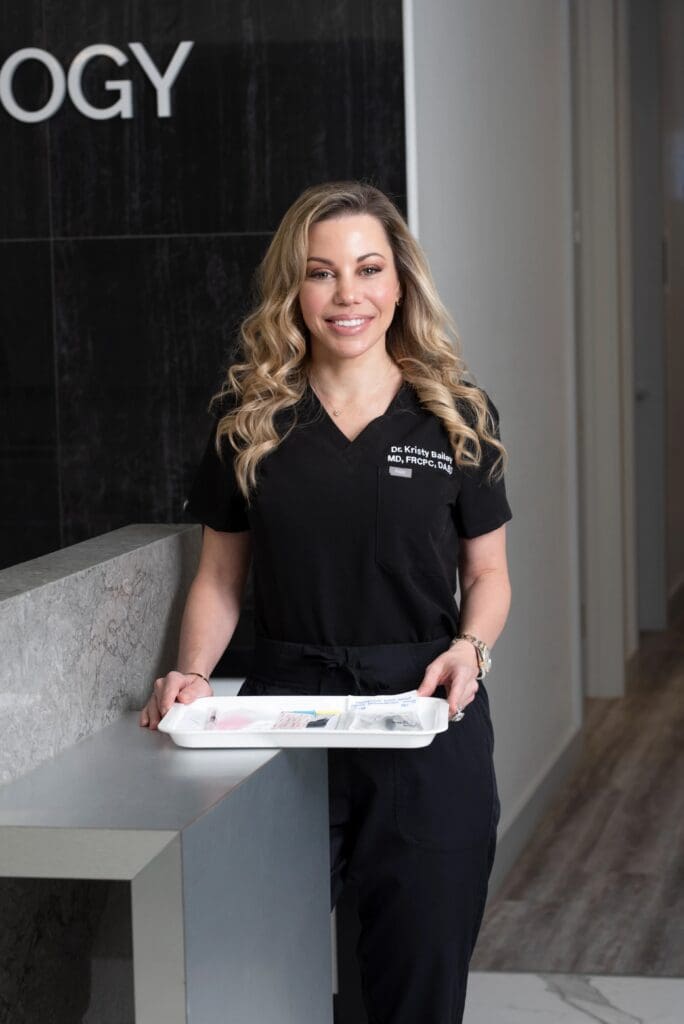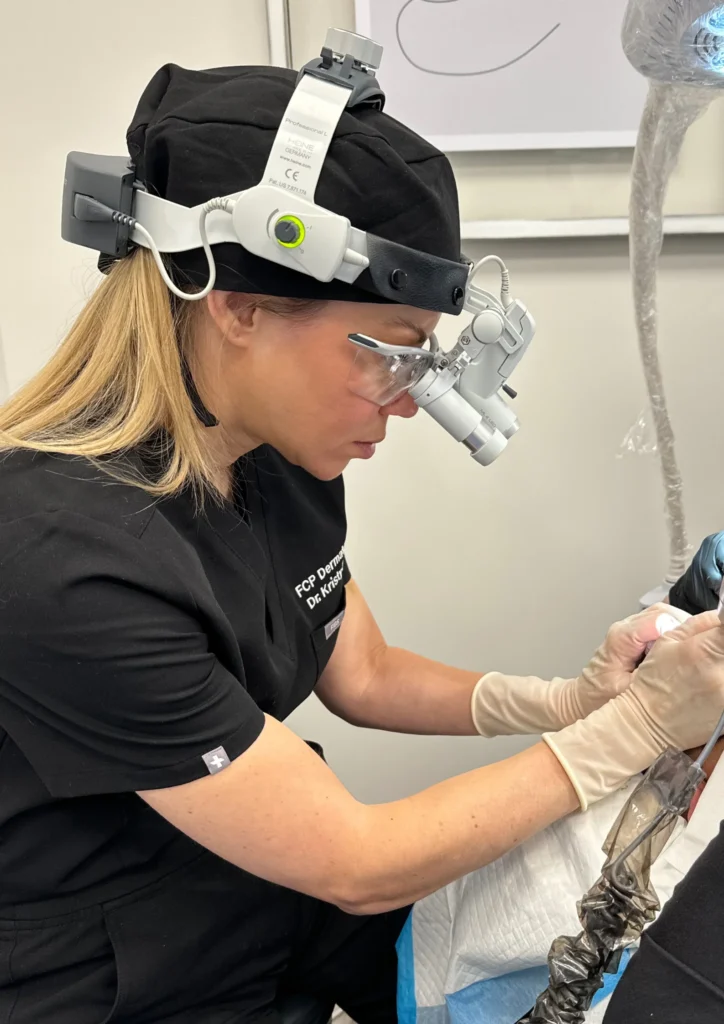With Menopause Awareness Month happening now, it’s important to address a symptom that often goes unnoticed: hair loss. Unlike more widely recognized issues such as sleep disturbances or joint pain, hair loss is a visible challenge that can deeply affect a woman’s self-esteem and identity. Dr. Kristy Bailey, a leading hair specialist and medical director of the Hair Transplant Centre Toronto, aims to destigmatize this issue for the nearly 50% of women experiencing it during menopause. In this Q&A, she shares valuable insights into the causes, reliable treatments, and tips for maintaining healthy hair during this transformative stage of life. —Noa Nichol
“There are a few simple things you can do at home to preserve your hair. I suggest taking Viviscal professional strength oral tablets and using Rogaine 5% foam every night before bed. Red light helmets, such as the Theradome, are a great option. All it takes is 20 minutes a day, twice a week.”
Dr. Kristy Bailey
What are the primary hormonal changes during menopause that lead to hair loss, and why do nearly 50% of women experience this symptom?
Firstly, when testosterone levels decrease, we lose energy and muscle, and start to gain fat. Then, our progesterone falls and we have trouble sleeping, usually because of night sweats. Estrogen levels fall and we end up with dry skin, hair, and mucous membranes. All of these changes cause our hair to become thin and brittle.
How does menopausal hair loss differ from other forms of hair thinning or shedding that women might experience earlier in life?
Menopausal hair thinning is from gradual lowering of all hormones. Shedding, also known as Tellogen Effluvium, is usually postpartum or after a stressful event where hormone levels change very rapidly and the hair gets shocked. This form of hair loss generally recovers on its own. Menopausal hair loss will not recover on its own. Bioidentical hormones in the perimenopausal years can help prevent hair loss and can restore hair postmenopausal.
What non-surgical solutions do you recommend for women who want to restore hair density without undergoing invasive treatments?
Viviscal pills are a nice natural way to help give more nutrients to your hair. Red light is effective to grow new hair with no side effects. Rogaine can also help grow hair.
Are there any lifestyle changes, such as diet, supplements or stress management, that can help mitigate hair loss during menopause?
Bioidentical hormones in the perimenopausal or early postmenopausal years are the major things and can help mitigate hair loss during this time in a woman’s life.
What advancements in hair restoration technology are particularly effective for menopausal women?
The best option for women experiencing significant hair loss is a hair transplant, either follicular unit extraction (FUE) or follicular unit transplantation (FUT). We can actually permanently restore the density to the front, top, and crown of your head with this procedure. We can do it in one day and you will have more dense hair in the thinning areas for the rest of your life.
Can you share a few simple at-home tips for maintaining hair health and preventing further thinning during menopause?
There are a few simple things you can do at home to preserve your hair. I suggest taking Viviscal professional strength oral tablets and using Rogaine 5% foam every night before bed. Red light helmets, such as the Theradome, are a great option. All it takes is 20 minutes a day, twice a week.
How can women feel empowered and confident when facing visible hair loss, and what can be done to reduce the stigma surrounding this issue?
We need to educate not only the public but also physicians on how bioidentical hormones are not bad, but rather extremely helpful. Not only can they help women feel better during this change in life, but they can also help prevent other serious medical events. Our medical training focuses on analyzing lab values and treating the piece of paper rather than listening to patients, especially women. Women should not have to suffer from menopausal hair loss, night sweats, low energy, poor sleep, high cholesterol, osteoporosis, depression, and more. It’s possible that all of this can be reduced using bioidentical hormones.



Be the first to comment